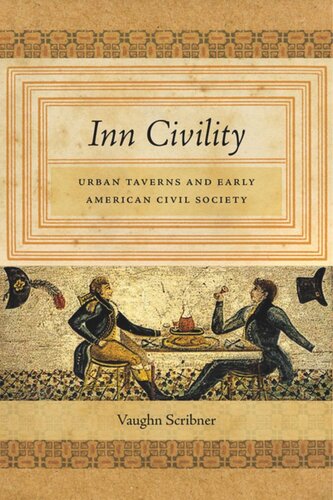

Most ebook files are in PDF format, so you can easily read them using various software such as Foxit Reader or directly on the Google Chrome browser.
Some ebook files are released by publishers in other formats such as .awz, .mobi, .epub, .fb2, etc. You may need to install specific software to read these formats on mobile/PC, such as Calibre.
Please read the tutorial at this link: https://ebookbell.com/faq
We offer FREE conversion to the popular formats you request; however, this may take some time. Therefore, right after payment, please email us, and we will try to provide the service as quickly as possible.
For some exceptional file formats or broken links (if any), please refrain from opening any disputes. Instead, email us first, and we will try to assist within a maximum of 6 hours.
EbookBell Team

4.8
64 reviewsExamines the critical role of urban taverns in the social and political life of colonial and revolutionary America
From exclusive “city taverns” to seedy “disorderly houses,” urban taverns were wholly engrained in the diverse web of British American life. By the mid-eighteenth century, urban taverns emerged as the most popular, numerous, and accessible public spaces in British America. These shared spaces, which hosted individuals from a broad swath of socioeconomic backgrounds, eliminated the notion of “civilized” and “wild” individuals, and dismayed the elite colonists who hoped to impose a British-style social order upon their local community. More importantly, urban taverns served as critical arenas through which diverse colonists engaged in an ongoing act of societal negotiation.
Inn Civility exhibits how colonists’ struggles to emulate their British homeland ultimately impelled the creation of an American republic. This unique insight demonstrates the messy, often contradictory nature of British American society building. In striving to create a monarchical society based upon tenets of civility, order, and liberty, colonists inadvertently created a political society that the founders would rely upon for their visions of a republican America. The elitist colonists’ futile efforts at realizing a civil society are crucial for understanding America’s controversial beginnings and the fitful development of American republicanism.